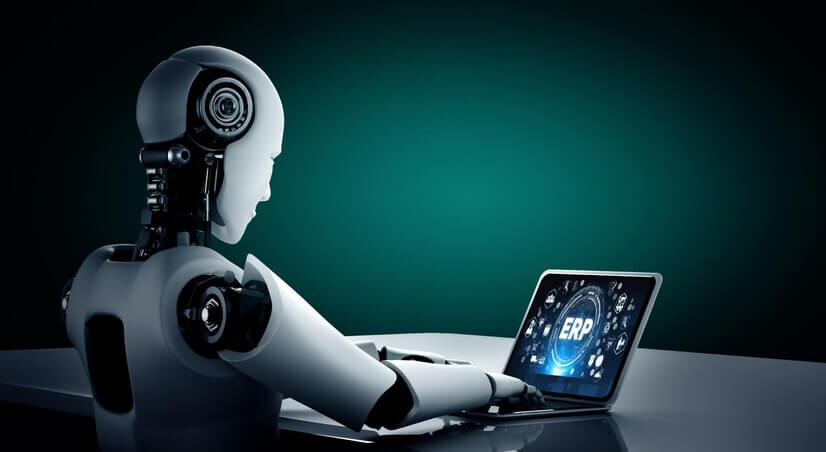How AI Is Shaping The Future Of ERP Software
In the changing world of today, organizations are not shying away from making large-level investments in artificial intelligence (AI) technology, machine learning, and advanced analytics. Businesses want to make the best out of these investments to ensure the business data is more actionable than ever.
Research shows that more than half of Fortune 500 companies are planning to invest heavily in AI technologies over, the next few years. Businesses are improving and expanding the functionality of core features and getting more out of their investment.
Let us understand how AI is changing business for the better.
1. Identifying Complicated Data Patterns
The factor that differentiates AI from any other mechanical data analytics system is that AI is designed to adapt and learn. AI not only processes the data passing through the ERP system, but it also mines it for the same details. AI searches for deeper and more complicated patterns within the data in hand.
These processes followed by AI reflect how the human brain works. It is adaptive, evaluating and decorating new data, and use it for decision making.
When ERP software is powered by AI, businesses can expect the same level of adaptability, and they can go beyond merely collecting your business data. AI in ERP can help with planning, strategizing, problem-solving and more.
2. Advanced Forecasting Models
When businesses can make accurate forecasts, it helps them in functioning with confidence and more productivity. Accurate information will help in different operations of the organization like supply chain management and warehouse management
Supply chains are never static, and hence many businesses find it hard to deal with the constant changes with the help of a traditional ERP system. When AI gets integrated into ERP processes, you can predict workflows or automate certain processes or make predictive decisions about customers on the basis of past behavior.
Your production department will also find it easier to balance supply and demand, which will save from issues like overproduction or underproduction.
AI tools can likewise recognize inefficient operational cycles as they happen, offering answers for better execution and diminishing pointless expenses. They could actually recognize which cycles go through an excessive amount of energy, proposing options and predictive diagnostics to limit the wastage of resources.
In the warehouse, AI will help your managers to leverage improved demand forecasting so using which they can manage and schedule the workforce for supply chain disruptions.
3. Auditing and Bookkeeping Software
Many organizations now depend on ERP programming to help with bookkeeping, auditing, and monetary record planning.
With AI in integrated software, you can run those reports through a keen program that is equipped for spotting issues, like dubious transactions or irregularities in data entry.
With a couple of clicks, AI can rapidly break down every one of the information gathered by clients and merchants the same, evaluating your capacity of taking financial risks. A few AI tools are even equipped for being prepared with expert CPA information through AI applications.
With this degree of knowledge, finance divisions can rely on AI in ERP to further develop their forecasting accuracy.
In accounting, AI can accomplish more than just estimating profit and loss statements. It can also help search patterns and connections that help your estimate tasks.
4. Improved HR activities
Most ERP Software offers HR and payroll functionality. With the improved analytical features that AI systems come with, you can boost these capacities.
AI has the ability to help HR managers keep a closer look at employee performance in order to help them make well-informed decisions in terms of rewards and bonuses or appraisals.
AI can also streamline recruitment and onboarding processes with ease simply by processing applicant data.
5. Improved Customer Service
Effective customer relation depends on the accuracy of data and its strength. Company representatives need easy and real-time access to consumer information in order to offer on-time solutions to their query with customization so that the consumers feel the human touch. Advanced AI-supported bots are more smart, intuitive, and efficient than ever before.
Conclusion :
Artificial intelligence has advantages and disadvantages for businesses. It provides us with the technology to automate tasks, which can help us process data and make intelligent decisions. However, it also removes the human element from business transactions.
ERP software needs AI too. ERP software enables employees to create, manage, and distribute supply chain details efficiently. When you couple this with AI’s ability to analyze vast amounts of data in a short time frame and make intelligent decisions on processing that data (such as what items are available or not), you have the making of an excellent automation tool.


